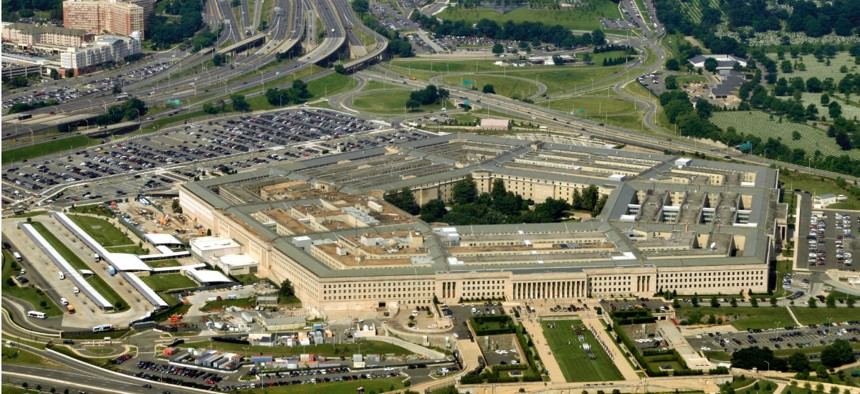Pentagon Watchdog Clears CENTCOM Intel Officers of ‘Cooking the Books’
Analysts charged that Central Command intelligence officers had falsified reports related to efforts to counter the Islamic State.
Twenty months after charges surfaced that U.S. Central Command intelligence officers had falsified and distorted reports related to efforts to counter the Islamic State, the Pentagon inspector general’s office released an exhaustive report finding significant communications problems, but no malfeasance.
The charges, first reported by Defense Intelligence Agency analysts to their IG office in May 2015, implied that senior U.S. Central Command officers “intentionally altered their analyses to inflate the assessment of Iraqi Security Forces’ capabilities and downplay the growing threats and capabilities of the Islamic State,” said the 190-page Defense Department IG report released on Wednesday.
The command, headquartered at MacDill Air Force Base in Florida, has responsibility for U.S. operations in Iraq, Iran, Afghanistan and Pakistan.
“We did not find systematic or intentional distortion of intelligence by CCJ2 [intelligence] leaders,” the IG investigators wrote. “We also did not conclude that anyone committed misconduct. However, we believe that the intelligence practices related to [Operation Inherent Resolve] intelligence products in the CCJ2 could have, and should have, been better, and further improvements can be made.”
The reasons for the rosy intelligence reports that critics thought the Obama administration would use to declare greater successes against the terrorist group had to do with “writing and documentation of supporting evidence.”
The accused—senior intelligence officials Army Maj. Gen. Steven Grove and Vice Director of Intelligence Gregory Ryckman (a member of the Senior Executive Service—“inherited a difficult command climate within the CCJ2 when they arrived,” the report said. “There was a stressful environment, a rapid pace of work, workforce reductions, crisis production, and an ambiguous relationship of DIA intelligence analysts assigned to the combatant command.”
The auditors, however, concluded that “deficiencies in these processes, such as ineffective communication and guidance, lack of adequate feedback, ambiguity and uncertainty about certain CCJ2 policies, and the ambiguous status of DIA analysts assigned to USCENTCOM, hindered the effectiveness and efficiency of the CCJ2 and [Joint Intelligence Center], as well as affected the morale of the analytical workforce.”
Those problems later eased, the investigators found, due to the leaders’ “positive steps.”
The report made 29 recommendations for further improvement. Among them: Central Command intelligence leaders should communicate feedback, guidance, and intent in a variety of techniques and settings, and verify that the message is reaching the analysts. Leaders should also verify that their direction was received and understood. In addition, the leaders should provide guidance for subordinates to raise any ethical dilemmas or suspected improprieties, the report suggested.
“They should also consider developing anonymous means, such as email, suggestion box, or ombudsman, for analysts to raise concerns about analytical integrity,” the report said.
CENTCOM Commander Gen. Joseph Votel released a statement saying his team appreciates “the extensive efforts by the Office of the DoD Inspector General in conducting its investigation. While the allegations were unsubstantiated, the DoD IG's report did provide thoughtful and helpful recommendations on ways to make improvements within the command and we are taking those and others' recommendations to heart and acting on them.”
Key members of the House national security committees issued a joint statement.
“The report confirms there were numerous problems within the Central Command and that there was an understandable and widespread perception that CCJ2 senior intelligence leaders were distorting intelligence to present a more positive view of the success of the ISF and a more negative view of the success of ISIL,” said House Armed Services Committee Chairman Mac Thornberry, R-Texas; House Permanent Select Committee on Intelligence Chairman Devin Nunes, R-Calif.; former House Appropriations Defense Subcommittee Chairman Rodney Frelinghuysen, R-N.J; and Joint Task Force leaders Rep. Brad Wenstrup, R-Ohio; and Rep. Ken Calvert, R-Calif.
“The inspector general’s findings echo many of the findings of the Joint Task Force we empaneled last year to examine these issues. Although the two inquiries were conducted independently, they involved interviews of many of the same individuals and reviewed some of the same material.”
The House members also commended the whistleblowers who came forward.








